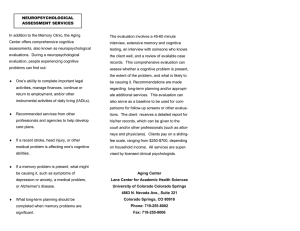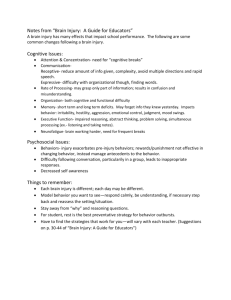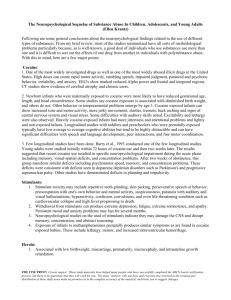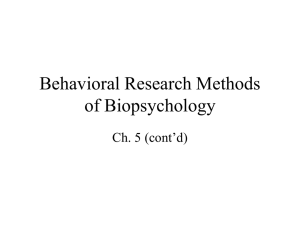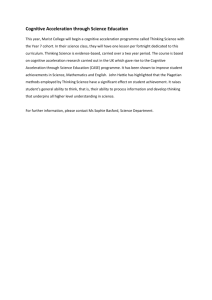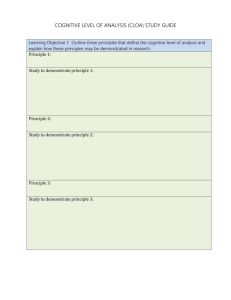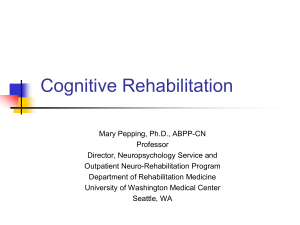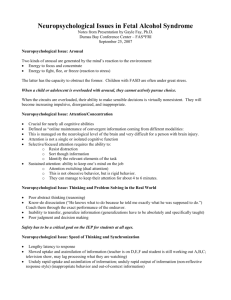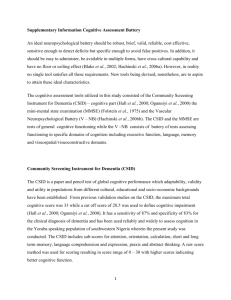Tina Sideris - Wits Donald Gordon Medical Centre
advertisement
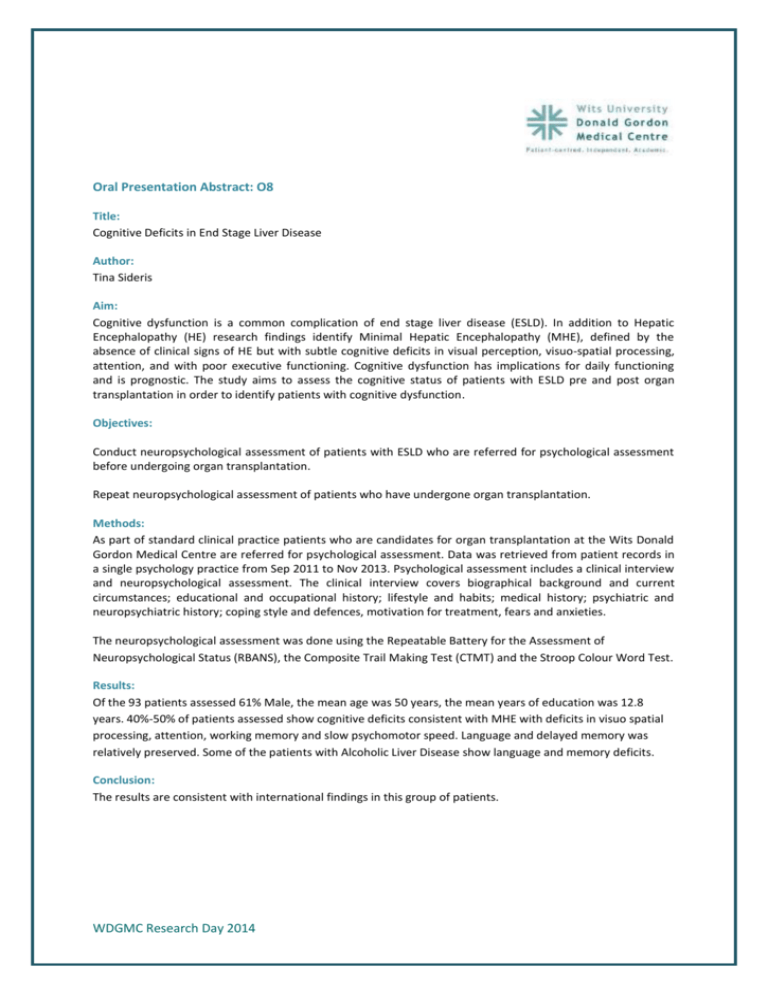
Oral Presentation Abstract: O8 Title: Cognitive Deficits in End Stage Liver Disease Author: Tina Sideris Aim: Cognitive dysfunction is a common complication of end stage liver disease (ESLD). In addition to Hepatic Encephalopathy (HE) research findings identify Minimal Hepatic Encephalopathy (MHE), defined by the absence of clinical signs of HE but with subtle cognitive deficits in visual perception, visuo-spatial processing, attention, and with poor executive functioning. Cognitive dysfunction has implications for daily functioning and is prognostic. The study aims to assess the cognitive status of patients with ESLD pre and post organ transplantation in order to identify patients with cognitive dysfunction. Objectives: Conduct neuropsychological assessment of patients with ESLD who are referred for psychological assessment before undergoing organ transplantation. Repeat neuropsychological assessment of patients who have undergone organ transplantation. Methods: As part of standard clinical practice patients who are candidates for organ transplantation at the Wits Donald Gordon Medical Centre are referred for psychological assessment. Data was retrieved from patient records in a single psychology practice from Sep 2011 to Nov 2013. Psychological assessment includes a clinical interview and neuropsychological assessment. The clinical interview covers biographical background and current circumstances; educational and occupational history; lifestyle and habits; medical history; psychiatric and neuropsychiatric history; coping style and defences, motivation for treatment, fears and anxieties. The neuropsychological assessment was done using the Repeatable Battery for the Assessment of Neuropsychological Status (RBANS), the Composite Trail Making Test (CTMT) and the Stroop Colour Word Test. Results: Of the 93 patients assessed 61% Male, the mean age was 50 years, the mean years of education was 12.8 years. 40%-50% of patients assessed show cognitive deficits consistent with MHE with deficits in visuo spatial processing, attention, working memory and slow psychomotor speed. Language and delayed memory was relatively preserved. Some of the patients with Alcoholic Liver Disease show language and memory deficits. Conclusion: The results are consistent with international findings in this group of patients. WDGMC Research Day 2014
